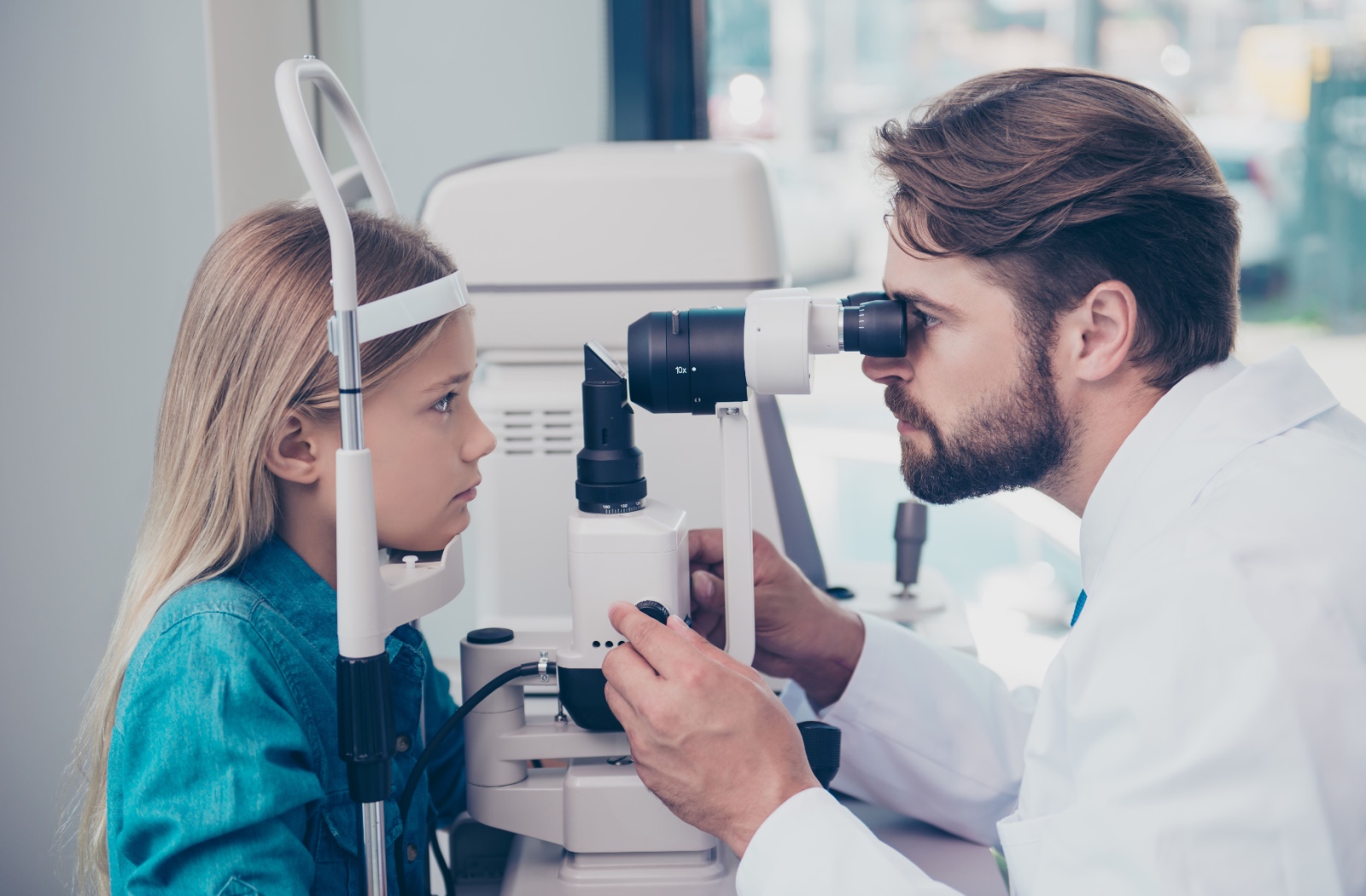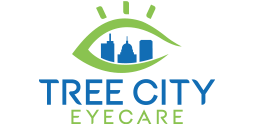If you can’t see distant objects clearly but can focus well on something nearby, you may be dealing with myopia. This common refractive error can cause blurry vision when trying to focus on anything past arm’s reach. Often developing in early childhood, it tends to progress until early adulthood.
In children, myopia control can help slow how far myopia progresses. This may involve the usage of specialty lenses and atropine eye drops to signal to the eye that it’s time to stop elongating. For adults, laser eye surgery can be an excellent way to permanently fix myopia. However, not everybody is eligible for this surgery, so a laser eye surgery consultation is required to determine if you qualify.
What Is Myopia?
Myopia, more commonly called nearsightedness, causes nearby objects to appear clearly while getting blurrier the further they are from the eye. It’s an extremely common refractive error—but what does this mean, exactly?
When your eye is shaped properly, light enters the eye and focuses on a single point located on the retina at the back of the eye. The retina then sends that signal through the optic nerve to the brain. A properly focused retinal image is essential for clear vision.
However, what if the eye is misshapen? Light can’t focus properly, causing things to become blurry at different distances. When the eye grows too long, it’s called myopia. Light doesn’t refract properly and is focused on the retina incorrectly; the result is blurry and out-of-focus vision.
The Signs & Symptoms of Myopia
When you have myopia, the first and most common sign is blurry vision when trying to focus on anything more than a few feet away. However, over time, this can start to put additional strain on your visual system. This can cause:
- Headaches
- Eye strain
- Squinting
- Fatigue
- Difficulty seeing in low-light conditions
This condition is about more than just blurry vision, though. Because myopia causes the eyeball itself to elongate, the physical structures of the eye can become compromised. High myopia puts you at an increased risk of:
- Retinal tears or detachment
- Open-angle glaucoma
- Cataracts
- Age-related macular degeneration
This makes it essential to take active steps to prevent myopia from reaching this point. How do you do this?
How Is Myopia Treated?
Because myopia is progressive and continues worsening until early adulthood, intervention is often more effective sooner rather than later. Regular eye exams are crucial, as children often don’t realize their vision is deteriorating and they assume what they see is normal. If your child is diagnosed with myopia, it’s time to visit your optometrist to discuss myopia control.
Here at Tree City Eyecare, we recommend one of the following:
- Orthokeratology (ortho-k)
- Soft multifocal contact lenses
- Atropine eye drops
Ortho-K
Remember that myopia causes the eyeball to elongate, and the vision problems caused by this condition are due to the misshapen nature of the eye. Ortho-k aims to temporarily reshape the eye so it can refract light properly.
With ortho-k, special contact lenses are worn overnight and removed in the morning. They apply gentle pressure to the eye, slowly reshaping the cornea during sleep. The result is a gently re-shaped cornea that can refract light correctly without the need for other contact lenses or eyeglasses. Throughout the day, the eye slowly reverts to its natural shape, so regular use is necessary to maintain clear vision. Orthokeratology has been shown to reduce the rate of myopia progression.
Soft Multifocal Contact Lenses
Specialty lenses, like MiSight 1-day soft contact lenses and NaturalVue, can also be an excellent way to control myopia progression. These lenses focus light on the retina it a way that reduces the erroneous growth signal, slowing the elongation process. These are single-day lenses that should be disposed of after use.
Atropine Eye Drops
When applied in a low concentration, atropine eye drops can slow myopia progression in children. In high concentrations, atropine is used as a dilating drop. But with the lower concentrations used in myopia control, this dilating effect is greatly mitigated. Studies have shown low-dose atropine is effective in slowing myopia. It can be used on its own or as an adjunct to other forms of myopia control.
However, for adults whose eyes have already elongated, what options are available for treatment? Orthokeratology is an excellent option for adults who are interested in a reversible way to avoid spectacle and contact lens use during the day. For a more permanent solution, surgery is necessary.
Laser Eye Surgery
When you’re an adult, your eyes have likely stopped growing. The growth that has already occurred cannot be reversed. If interested in more permanent vision correction, your optometrist may be able to help with a laser eye surgery consultation.
Laser assisted in situ keratomileusis, or LASIK, is a common procedure for correcting refractive errors, including myopia. It involves reshaping the cornea using laser technology, allowing light to focus directly on the retina without the need for other types of vision correction.
However, not everyone is a good fit for LASIK. Certain factors play an important role in whether or not you’ll be eligible for this surgery, including:
- Corneal thickness
- Age
- Overall eye health
- Medical history
- Whether or not your prescription has remained stable for the last year
This is why it’s essential to schedule a consultation with your optometrist. They can examine your eyes to determine whether or not LASIK is an option for you. If you’d like to explore non-surgical options for reduced dependence on glasses and contact lenses during the day, talk with your optometrist about orthokeratology.

Talk to Us About Myopia Treatment
It’s essential to take steps to treat myopia to prevent further problems down the line. Our team at Tree City Eyecare is the leader in myopia control in Boise, Eagle, Meridian and the surrounding areas. We are here to help guide you through your options. Don’t wait until myopia has progressed; book an appointment with us today, and take the first step toward clearer vision and healthier eyes.


